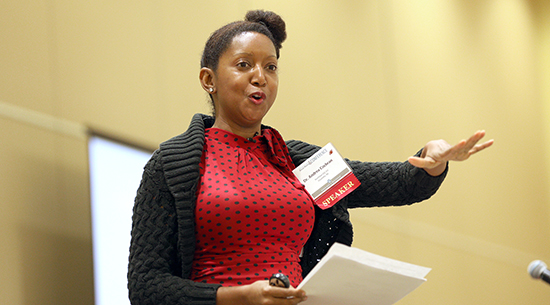Justice Delayed When Defendants Held Without Benefit of Hearing, Counsel

For more than a year, dozens of detained defendants in Wisconsin have been held for months without a hearing and without counsel being appointed. This is a result of the State Public Defender being unable to readily find counsel at its $40-per-hour rates in those cases in which private attorney appointments are required.
The U.S. Supreme Court has held that a criminal defendant detained in jail is entitled to an immediate probable cause determination. Gerstein v. Pugh, 420 U.S. 905 (1975). Wis. Stat. section 970.03(2) mandates that a person held in jail on a felony is entitled to a preliminary hearing within 10 days. Coleman v. Alabama, 399 U.S. 1 (1970), holds that a defendant is entitled to counsel at a preliminary hearing. While in some counties judges are court appointing counsel at higher rates in order to avoid delays, in some counties when the State Public Defender cannot find attorneys to take cases, judges are refusing to court appoint attorneys and people are held in jail for substantial periods of time without a hearing.
It is surprising that there has been little litigation out of this situation so far. The State Public Defender for some reason has discouraged litigation to try to stop these delays. There is only one known case that is pending in the court of appeals in which a defendant has moved to dismiss his case due to delays.
There is a federal class action, which was filed in the Western District of Wisconsin by defendants in Ashland and Bayfield counties against the state of Wisconsin who were so held. A motion to dismiss that case based on abstention has been filed and briefed. That motion has been pending since April. No other action has been taken in that case.
A defendant in Marathon County was held in jail on a felony from September 2018 until January 2019 without a preliminary hearing. That defendant unsuccessfully moved to dismiss his case and petitioned for an interlocutory appeal in January. The Wisconsin Court of Appeals has 18 transcripts showing delay of that case because the State Public Defender could not find an attorney to take that case. As of this writing, the court of appeals still has not acted on that interlocutory petition. The defendant is still held on bail not posted with his case pending in Marathon County Circuit Court.
State v. Dean, 163 Wis. 2d 503, 471 N.W. 2d 503 (Ct. App. 1991), holds that where the State Public Defender is not able to appoint counsel, the trial court should court appoint counsel who is then paid by the county. In SCO 17-06, In re Petition to Amend SCR 81.02, 2018 WI 83 (June 27, 2018), the Wisconsin Supreme Court said that trial courts should be appointing counsel to avoid delays.
While the existing class action and another proposed class action name the state, there might be some productivity in exploring an action against the counties in which delays are occurring. See, for instance, Jauch v. Chactow County, 874 F. 3rd 425 (5th Cir. 2017), where a county was found liable for delaying a case in which the defendant was held in jail for a prolonged period without hearing or counsel.
Also take into account existing court appointments under Dean in which the county pays the attorney fees per SCR 81.02. Before the legislature created the State Public Defender, judges appointed counsel for indigent criminal defendants. It may not be that it can be successfully argued that the state has assumed constitutional liability just because it created and funded such an agency. At the present time, any court appointments when there is right to counsel are funded by the counties. If there is governmental liability for depriving a criminal defendant of due process in Wisconsin, it is not settled in Wisconsin which is the appropriate entity.
Attorneys with the Wisconsin Association of Criminal Defense Attorneys (WACDL) have recently found that such delays continue in a number of counties. While the legislature has passed and the governor has signed legislation increasing the rate of pay of private attorneys to $70 per hour (beginning January 2020), it is not clear this legislation will cure delays. In counties where the judges are refusing to appoint, defendants are likely to continue to be held without hearings and counsel until attorneys are found who are willing to work at these low rates. A judge in Marathon County has indicated it is extremely difficult to find attorneys willing to take Dean or GAL appointments at $70 per hour.
As a retired attorney, I have been following this situation for well over a year. The wheels of justice move slowly. I would hope that the spirit of Gerstein still lives, that Wis. Stat. section 970.03(2) means what it says, and that trial courts will soon be mandated to follow In re Petition to Amend SCR 81.02. It is not clear what will happen with the current litigation. Another class action may be filed, perhaps in state court, but for now the judicial system is tolerating these protracted delays.
Gary Getzin
Wausau
We Want to Hear from You! Submit a Letter to the Editor
Wisconsin Lawyer provides a forum for members to express ideas, concerns, and opinions on law-related subjects. Send comments to wislawyer@wisbar.org (include “Letters” in the subject line), or mail to Wisconsin Lawyer “Letters,” P.O. Box 7158, Madison, WI 53707-7158. Limit to 500 words. Writing guidelines available.
Connect With Us Online. Post comments to articles
online, and find us on Facebook, Twitter, LinkedIn, YouTube, and Instagram.
You Know You’re Doing Something Right When …

In this fast paced, on-to-the-next-thing world we live in, there are few opportunities to stop and reflect. I am compelled to take this opportunity to stop, reflect, and express my sincere gratitude. I was a presenter at the State Bar of Wisconsin’s Annual Meeting & Conference in June. In our closing plenary, Chris Osborn and I presented strategies for preventing sexual harassment behavior in the workplace, including steps organizations can take to create a professional, yet welcoming, workplace environment.
Several things about my experience with the State Bar of Wisconsin are worthy of shout-outs.
Before the conference even began, I was impressed with the level of professionalism and organization of senior meeting planner Reggie Driscoll. Once we arrived at the event venue, we were greeted with such warmth and hospitality. Although we had never met in person, Annette Ashley, the State Bar’s director of professionalism and engagement, welcomed us in as family. That open-armed embracing was prevalent throughout the conference, and I noticed it everywhere I went throughout my time there.
There was a sense of camaraderie that I have not experienced before with other associations. Even at the networking event at Lambeau Field, there was a distinct feel of unity and sincerity in the connections that were being made. The State Bar of Wisconsin is a stand-out in providing an atmosphere of collegiality and connection.
What’s more, the continuing education is top notch, and the State Bar is committed to providing programming that is valuable to its members. It was evident that the State Bar prioritizes its members by supporting them in a variety of ways, many of which probably go unnoticed or are taken for granted.
Another reason I decided to write is to acknowledge the State Bar of Wisconsin as being an exemplary association; one that, in my estimation, is largely unmatched. In short, Wisconsin has really raised the bar as a model for other associations throughout the United States and Canada.
Dr. Andrea Cochran
ReelTime CLE
Supreme Court to Consider Petition on Guardian ad Litem Continuing Education

In “Pros & Cons: A Review of Child Placement and Support Proposals” (Wisconsin Lawyer, July/August 2019), Mark Fremgen and Tiffany Highstrom summarized several measures before the legislature to make changes to child support and the notion of presumed equal placement. The summary also included one petition before the supreme court to change continuing legal education (CLE) requirements for guardians ad litem (GALs).
A reader posted a comment regarding the petition on GAL education:
Reader: The supreme court has before it a petition to amend SCR 35 to require that family law GALs have specific and recurring CLE credits on the topic of domestic violence. You can access the petition and its supporting information at www.wicourts.gov/scrules/1913.htm.
The posted information does not show the date or time of the public hearing, but an August 14 letter to interested persons from the Office of Court Commissioners says that the hearing will be conducted Oct. 22, 2019 (no set time indicated). That letter indicates that any comment to the rule petition should be filed by Sept. 10, 2019, with the Clerk of Supreme Court, Attention: Deputy Clerk-Rules, P.O. Box 1688, Madison, WI 53701. It further says that a Word version of the comment be emailed to clerk@wicourts.gov. Guidelines for comments are at www.wicourts.gov/scrules/petitioncomment.htm.
Gretchen Viney
U.W. Law School, Madison
Answers to 13 Questions Provide Guidance on Legal Technology

In “13 Cybersecurity Questions Lawyers Often Ask” (Wisconsin Lawyer, June 2019), Sharon Nelson and John Simek shared the questions they have been asked most often during lectures they’ve presented during the past several months. Many of the questions, not surprisingly, pertain to cybersecurity.
A reader posted a comment:
Reader: This is an excellent overview. One thing I would add is that if you’re dealing with sensitive client data you may want to look into a “zero knowledge” cloud provider for email, text messages, and data storage. In a zero knowledge system, communications are encrypted with a key only your firm, client, or company knows. The provider can neither browse your data nor provide it to a third party in its unencrypted form because it does not have your key.
Chad D. Post
Wisconsin Lawyers Experience Threats of Work-related Violence

In “The Threat of Violence: What Wisconsin Lawyers Experience” (Wisconsin Lawyer, June 2019), Stephen Kelson said although many people only become aware of crimes involving lawyers or judges when a fatality is reported in the news media, employment-related violence and threats against lawyers and judges occur with disturbing frequency.
A recent survey gathered information from State Bar of Wisconsin members about their personal experiences with work-related violence. A key finding showed 49.1 percent of respondents reported that they had been threatened or physically assaulted at least once.
A reader posted a comment:
Reader: The level of participation by this Bar is pathetic, not enough of a response to make any of the statistics of any value. How much money did the Bar waste on this?
Thomas C. Roley
Wausau
Response: The comment questions the validity of the statistics reported in the article. That’s fair. Without getting into the weeds, statistical validity depends on many factors, including how the survey is conducted, its scope, the size of the participating sample, and so on.
The statistics that the author provided do not depend on sample size. All the statistics were reported as percentages of only the responses the author received. For that reason, the author was very careful to make claims and calculate percentages only for those who responded to the survey. He did not generalize his remarks to include the whole Wisconsin attorney population. That doesn’t mean that the results aren’t credible; it just means that the conclusions are narrow.
While the results are not scientific, they are nonetheless useful for shedding light on a problem our members feel strongly about and contribute to a national picture on violence against the legal profession.
As to the survey cost, because recruiting participants was done by email, there was no manual data entry, and the author did the analysis. The only expense was for a few hours of staff time.
Editors, Wisconsin Lawyer
State Bar of Wisconsin, Madison
